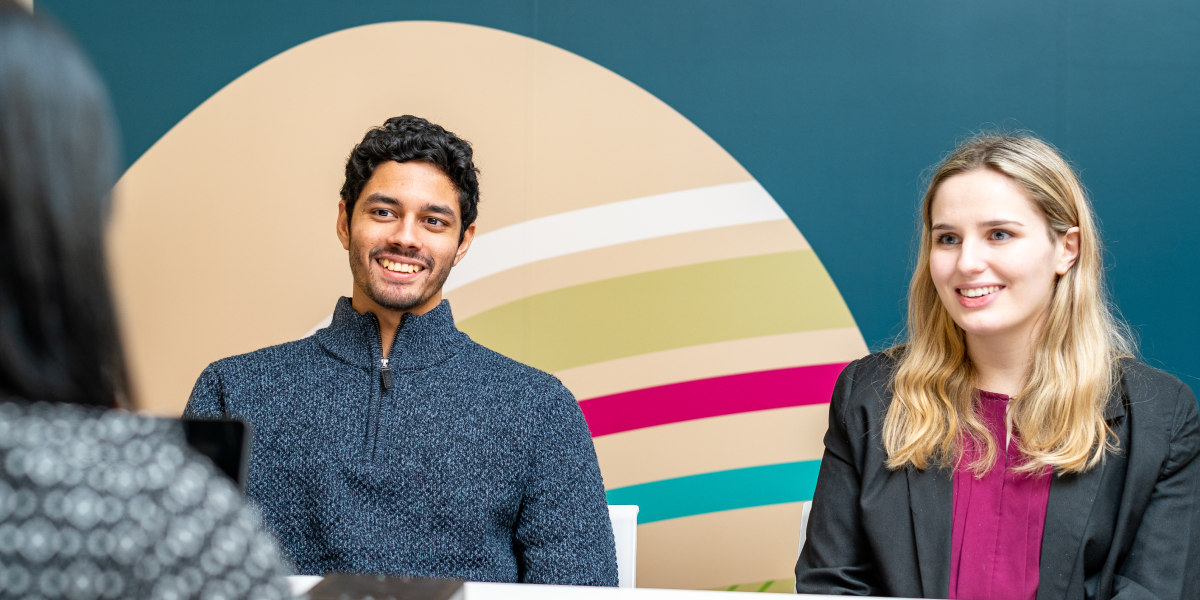Advertisers advice
How to appeal to graduates this summer
Catch graduates before they disappear from their tertiary institutes
It’s that time of year when tertiary graduates are leaving universities and training facilities to start their working lives. There’s a flurry of applying for jobs, accepting offers and signing employment contracts, a game of musical chairs as last year’s graduates move up and make room for the next cohort to come in.
Through career expos and on-campus visits in the preceding months, employers and recruiters will have been laying the groundwork all year to attract the brightest and best graduates and now is the moment the rubber hits the road. The best students could be attracting multiple offers, so employers may have to go back to others a few times before they’re successful in attracting the talent they want. And they’ll be looking to universities and other tertiary institutes to help them source these graduates.
According to Michael Parkes, Victoria University’s Assistant Manager, Careers and Employment, a lot of the larger employers recruit 10 to 12 months in advance, whereas smaller organisations may do it a lot closer to the date they need to hire, as they confirm their business needs for the coming year.
Treat graduates with empathy and understanding at this time
Companies will be keen to secure their graduates as soon as possible but it’s important to take a minute and think about where the students' heads are at this time of year. They’ve got a lot going on. They’ve only just finished their assignments and exams and are feeling a bit exhausted. They’re moving out of their student flats, possibly moving home for a while over the summer, perhaps they have summer jobs about to begin.
And, if they’re in a sector of high demand, such as health, tech, education or agriculture, they may be getting a bit inundated with offers.
Lincoln University careers adviser, Michelle Ash says: “Agriculture graduates are in very high demand and have been for a very long time. The reality is we don’t produce enough agricultural graduates to meet demand.”
As a consequence, employers need to “fight it out” to get graduates, adds Michelle.
A trend the careers adviser is seeing is that agriculture industry employers aren’t just going to agricultural-centric universities like Lincoln and Massey for graduates but to every university. “It may be that the graduate grew up rurally and has different qualifications, but they have that farming systems knowledge and know the community,” suggests Michelle.
Employers encouraged to think laterally when hiring graduates
University of Canterbury employment coordinator, Robyn Cummins says a lot of employers are just interested to know that the student has a good capacity to learn, because industry and tech is changing all the time, says Robyn.
“Bachelor of Arts graduates, for instance, have incredible research skills. All qualifications have a variety of skills,” she says. One graduate she knows had a Bachelor of Science in microbiology, a minor in psychology, and he’s now working in the insurance industry.
Employers should also keep an open mind when advertising roles and be wary aware of explicitly listing certain qualifications, suggests the employment coordinator.
If a job, for instance, lists 10 skills they’d like the applicant to have, there are some applicants who think they must have 9/10 before they’ll apply, while others will apply if they have just one of them.
The Canterbury University employment coordinator recommends a job advertisement from Christchurch City Council which included a section headed: “Your day to day will include….” With this kind of approach, the position becomes immediately relatable and gives graduates a feel of what the job might really involve, says Robyn.
Internships and cadetships can supply a graduate pipeline
The employment adviser likes it when companies offer internships or something similar. “The beauty of offering internships and cadetships is that companies give themselves a pipeline of future graduates,” says Robyn.
“For students, those opportunities to get involved in a business, to be working within it, are invaluable, and the same goes for the employer too,” she explains.
Most universities offer internship opportunities working with employers, and these are growing, says the employment coordinator. They’re incredibly important for students. That learning experience and industry experience are about seeing where those transferable skills come in, she says.
Robyn strongly encourages companies to have events at their offices or bases too, so groups of students can get a feel of the organisation.
Employers should always take a register of attendees so they have a contact for the students in the future, at any events, she says. And then, if an organisation has a Facebook group or a Whatsapp group, they can share details and invite them to participate in future activities.
Ways to engage with students over and above career expos
There are many ways companies and recruiters can interact with senior students in the run up to their final year of study when they start looking for their first job.
Victoria University’s Mike Parkes says employers should take a tiered approach to senior student engagement, connecting with them in a number of ways.
Firstly, it’s about knowing about the academic year, the times when students are contactable and the times when they’re buried with assignments. The key months for employers to be actively contacting students is late February to April when they are fresh and back from holidays and then again from mid July to September, he says..
Student social clubs are another great way to connect with students during the year, Mike says. Often, these clubs will often have Facebook groups, through which employers can make contact. Companies can be involved through sponsorships and host industry nights.
The other type of engagement is more bespoke, says Mike, where an organisation comes into the university to do a talk or run an event. This is not just about the big multi corporates, Victoria University tries hard to bring in smaller organisations too, he say.
When an organisation comes in, they’ll talk about the organisation and culture, why they’re a desirable destination, then they’ll often provide a “value add” element, tips and tricks on how to apply for a job with the company, he says.
Meanwhile, when students are harder to reach on-campus, gaining experience out in the field, Mike says every department will have a school manager who knows how to contact the students. "School managers are often well placed to signpost towards other school-specific networking channels if our conventional engagement channels don't suffice," he says. This can work well especially for departments like education where students spend less time on-campus and are out in schools for big chunks of time.
University careers advisers talk to each other
One of the unique things about the New Zealand university careers system, which people may not know about, is all the universities’ careers advisers work collaboratively to help employers and students connect. Each university has an employer relationships manager and they meet frequently to align employer strategies, says Mike.
The NZ Uni Talent Group runs podcasts where they cover topics for employers and recruiters, for instance how to stand out during the busy March engagement period.
At Canterbury University they have a Careers YouTube channel where careers advisers and students pose questions to groups of employers giving them a platform to talk to students and upcoming graduates that way.
“With students so used to having things online, the convenience of reviewing these videos anytime is useful,” says Robyn.
What graduates are looking for in the places they work
While smaller employers might think they can’t compete with the big organisations with well- organised graduate programmes, not all students want to work for big companies, says the Canterbury employment coordinator. Some are very keen to be working in smaller organisations where they may be more comfortable with the culture, she says.
Students going out into the world are particularly interested in what an organisation is doing around sustainability. “They’re very savvy about greenwashing,” says Robyn.
On a lighter note, students don’t mind a bit of “merch” from employers, she says. This might range from sustainable wooden pencils, sunglasses, reusable metal coffee cups, reusable tote bags, USB sticks and a mix of hard and online collateral.
A smart move to bring along recent grad hires similar to recruiting events
A number of organisations, when they’re on the hiring trail, will bring along former graduates when talking to potential hires, and this is a smart move, say the university careers advisers.
Victoria University’s Mike Parkes says it’s helpful for them to use this tactic. “It’s not unusual for firms to have recent grad-hires participate in their pre-selection on-campus activities, things like presentations, workshops, careers expos,” he says.
“Since Covid, we’ve also seen graduate recruiters being more generous with offering networking options,” he adds. For example offering to connect via LinkedIn after an information session or some other direct engagement. This type of informal networking opportunity thankfully seems more prevalent now, says the careers and employment manager.
Victoria University computer science graduate, Fergus Donnelly, recently hired by a Wellington tech start up, appreciated having a data scientist in the interview whose job he would be stepping into. This staff member had graduated from Victoria the previous year.
“It was reassuring for me to see where I could be in a year’s time,” says the newly-minted Victoria University honours graduate.
He’s excited about the culture of the tech company he’s going to. “They’re a young, hungry group where everyone works really hard and everyone’s learning. It feels like a real hub of ideas,” says Fergus.
What a tech business is doing to appeal to graduates
When employers are talking to potential graduate hires, they should highlight the support they’ll get as part of the graduate programme, says Renée Anderson, People & Culture Advisor and Graduate Programme Lead at Auckland-based tech firm, RUSH.
RUSH, with a staff of 90, is behind the NZ COVID Tracer for the Ministry of Health app and Google’s indigenous language translation app, Woolaroo, among other digital products.
“One of the biggest conversation points we found when recruiting was how impressive having access to both a technical guide and mentor was, says the People & Culture Advisor.
Find your point of difference when hiring, adds Renée.
“There are so many options for grads, from huge multinational corporations to privately owned SMEs (small to medium sized enterprises); figuring out where you fit in the ecosystem and what you can offer that the alternatives can’t, is important.”
“Grad recruitment is 10% who you hire that year and 90% your brand and reputation. The tech industry in NZ is small, and how you come across to students will make sure they remember you when they’re a senior,” notes the graduate programme lead.
Purpose and culture trump many things, so be genuine in your pitch, says Heather Polaschek, head of People & Culture at RUSH. The company caters for a wide range of interests and backgrounds and shows this through its clubs, like social sports teams, music groups, Dungeons & Dragons and Puzzling groups.
“Communication is essential, from acceptance of job applications to the first phone screen to how you offer or reject candidates,” says Heather.
And video and channel engagement matters, she adds. The company invests a lot into good quality video storytelling.
“Don’t underestimate the importance of social media. Use short videos from employees sharing what it’s like to work at your organisation,” she adds
RUSH believes in Involving staff from all levels in the hiring and onboarding process.
“Representation is critical for diversifying and balancing our industry. Women in tech are great to get onboard, as well as a mix of cultures and ethnicities, stresses the head of People & Culture.
“We all know that you can’t be what you can’t see, so highlighting a mix of people will reach different graduates who see there’s a place for them,” says Heather.
Engaging with the tertiary ecosystem is important.
RUSH likes to bring tertiary staff and graduate candidates into the office. It gets them really excited, says the People & Culture head.
And don’t ignore the smaller institutions and training facilities when hiring, they have some amazing students and can be easier to build relationships with than the bigger institutions, advises RUSH founder Danu Abeysuriya. The tech company works with a number of organisations including Techtorium which has a big focus on getting more Māori, Pasifika and girls studying IT.
Mission Ready is another training facility RUSH works with and the company takes interns from Take2.org, an organisation which helps former prisoners find secure employment. “The guiding philosophy for us, we don’t care much where you came from, we care a lot about where you’re going,” says Danu.





.png)
